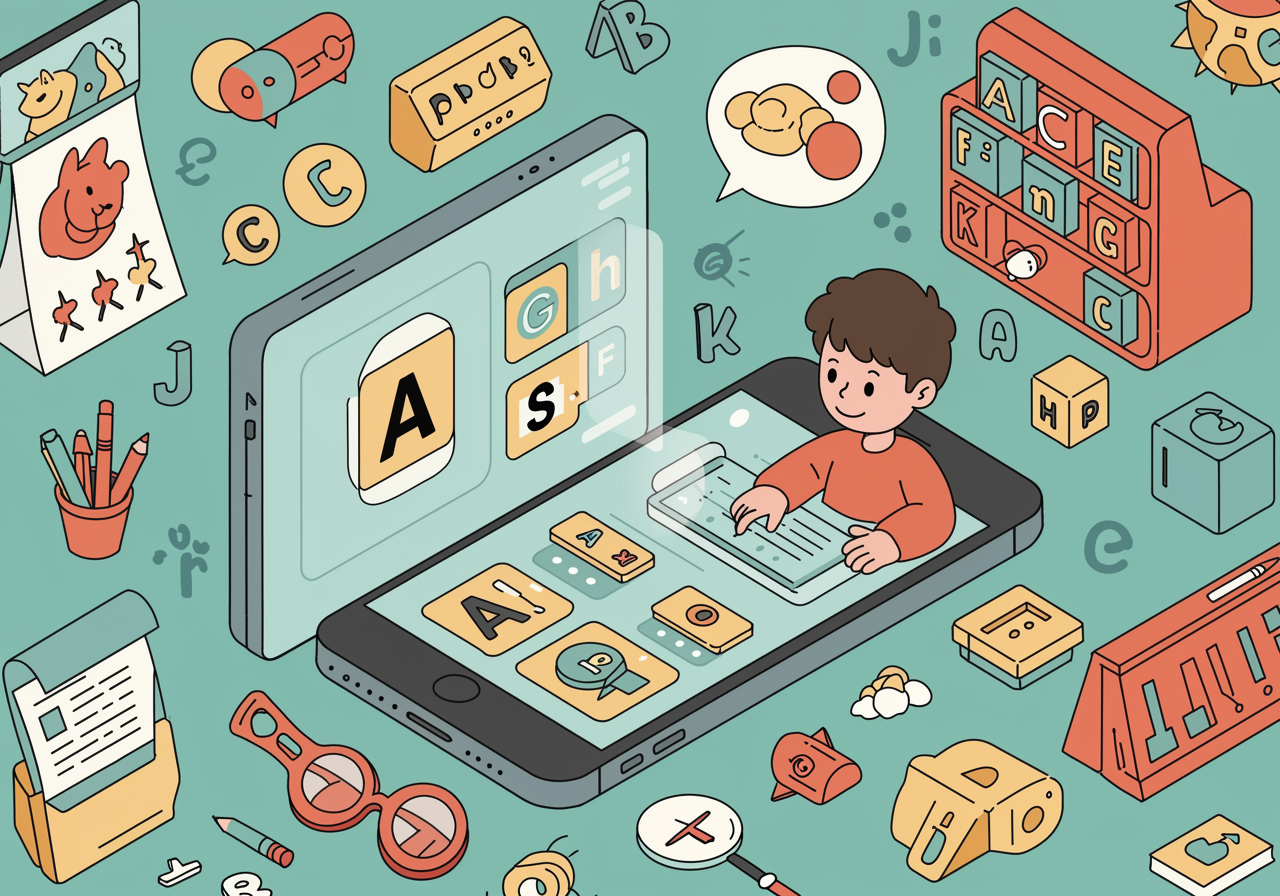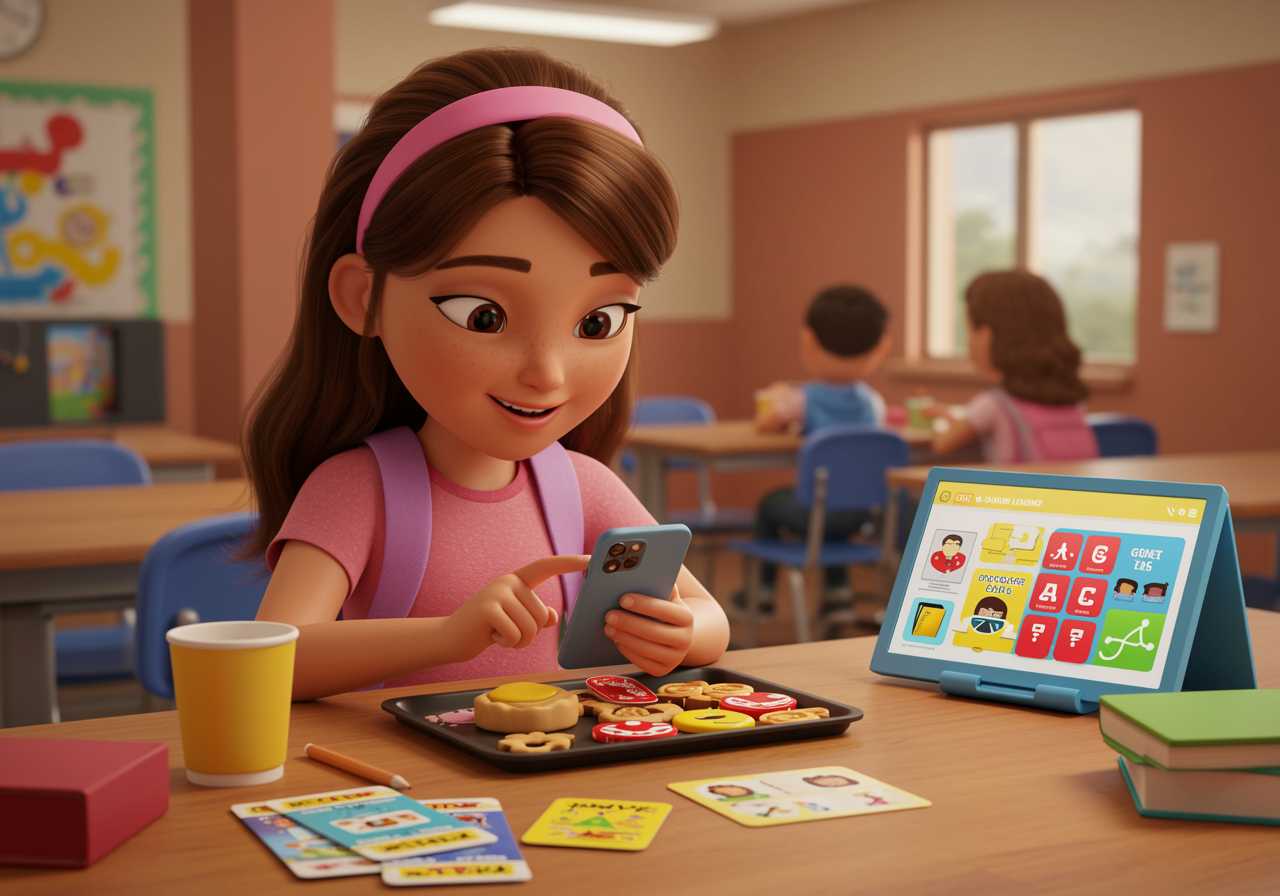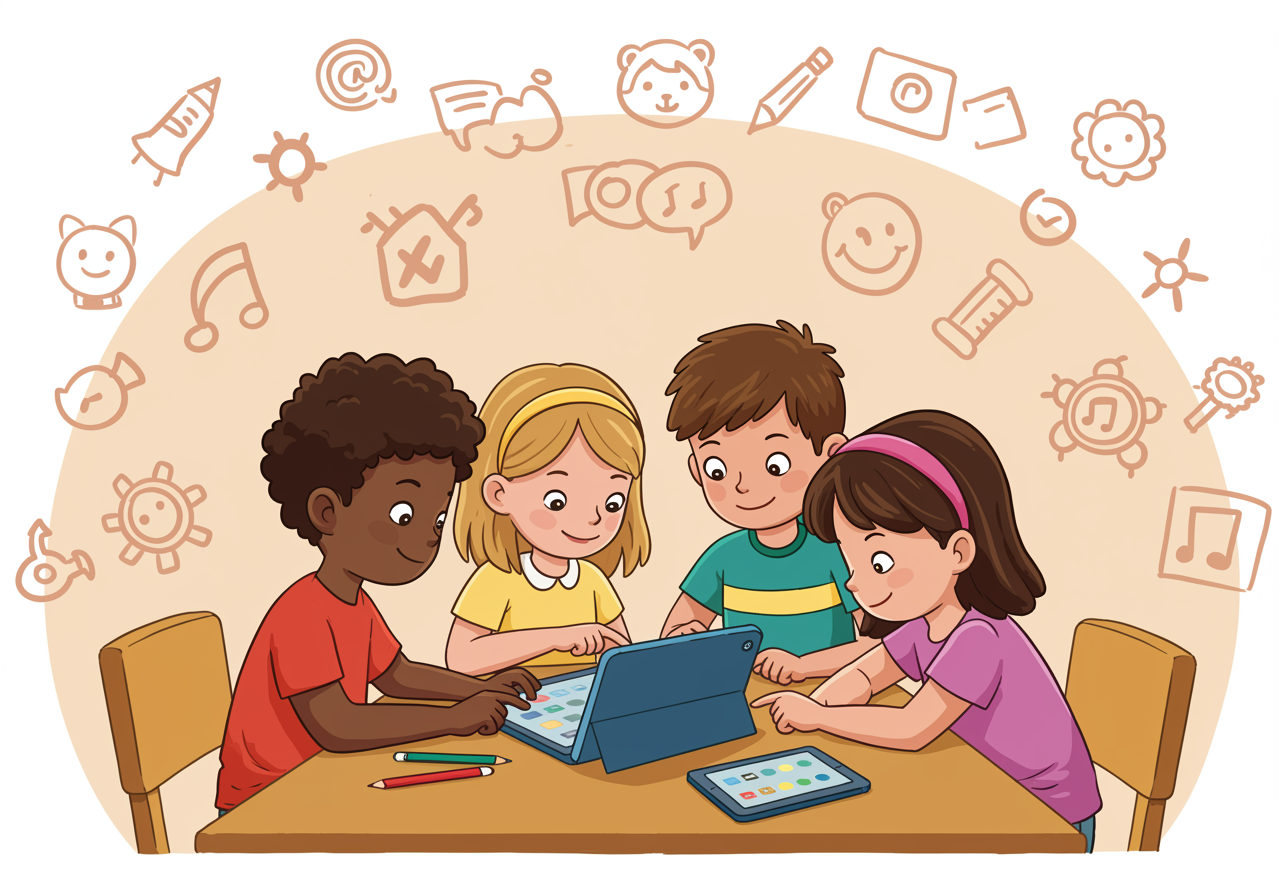From Textbooks to Talk-Bots: How AI Is Revolutionizing Language Learning
Discover why your phone might be a better language teacher than your old Spanish textbook
Explore how artificial intelligence is transforming the way we learn languages, making it more personal, fun, and accessible than ever before.
Overview
Remember when learning a new language meant carrying around heavy textbooks and waiting a week to get your test back? Today's kids are learning languages by chatting with AI bots, playing games, and getting instant feedback on their pronunciation. This shift from traditional classroom methods to AI-powered learning is happening right in your pocket, and it's changing not just how we learn languages, but how fast we can pick them up. Understanding this change helps families make smart choices about language learning and opens up conversations about technology's role in education.

Understand in 30 Seconds
Get up to speed quickly
- AI Makes Learning Personal: Unlike textbooks that teach everyone the same way, AI apps learn your strengths and weaknesses to create a custom learning path just for you.
- Instant Feedback vs. Waiting Games: Traditional methods make you wait days for test results, while AI gives you immediate corrections and encouragement as you practice.
- Games Beat Boring Drills: AI turns language learning into addictive games with streaks, points, and rewards instead of repetitive worksheet exercises.
- Practice Anytime, Anywhere: You can practice with AI tutors 24/7 from your phone, while traditional classes happen only at scheduled times in specific places.
Real Life Scenario
Situations you can relate to
Imagine Maya wants to learn French. In the old days, she'd sit in a classroom with 25 other students, all learning the same lesson at the same pace, whether they understood it or not. She'd practice pronunciation by repeating after a CD and wait until next Tuesday to find out if she got her vocabulary quiz right. Now, Maya opens Duolingo on her phone during lunch break. The AI notices she struggles with French 'r' sounds but rocks at verb conjugations, so it gives her extra pronunciation practice while moving her quickly through grammar she's already mastered. When she mispronounces 'bonjour,' the app immediately shows her mouth position and lets her try again. By dinner, she's earned 50 points, maintained her 12-day streak, and actually had fun doing it. Which method do you think Maya prefers?

Role Play
Spark a conversation with “what if” scenarios
What if you could have a conversation with someone who never gets tired, never judges your mistakes, and is available 24/7?
- Role play: Take turns being an AI language tutor and a student. The 'AI parent' gives encouraging feedback and adapts to the 'student child's' learning style, showing how AI tutors work.
What if learning a language was like playing your favorite mobile game?
- Role play: Create your own language learning game together. Design point systems, streak rewards, and fun challenges that would make you want to practice every day.
What if traditional and AI learning methods could team up instead of competing?
- Role play: Plan the ultimate language learning experience using both methods. Discuss what a human teacher does best and what AI does best, then combine them.
FAQs
Frequently asked questions people want to know
Can AI really replace human language teachers?
Not completely! AI is great for practice, feedback, and personalized lessons, but human teachers provide cultural context, emotional support, and real conversation skills that AI can't fully replicate yet.
Is AI language learning actually faster than traditional methods?
Studies show AI can help people learn certain language skills faster because of personalization and instant feedback, but the 'best' method depends on your learning style and goals.
Are language learning apps just games or real education?
The best AI language apps use scientifically-proven teaching methods disguised as games. The fun factor actually helps your brain remember better!
Examples in the Wild
See how this works day to day
- Duolingo has over 500 million users worldwide, making it more popular than many traditional language programs combined (Duolingo Company Reports 2023)
- Google Translate now supports real-time conversation translation in over 100 languages using AI (Google AI Blog 2023)
- Babbel's AI technology adapts lesson difficulty based on individual progress, with users showing 73% improvement in speaking skills (Babbel Efficacy Study 2023)
- ChatGPT and similar AI chatbots are being used by millions of students to practice conversation in foreign languages (OpenAI Usage Statistics 2024)
In Summary
What you should know before you start
- AI personalizes language learning to individual strengths and weaknesses, unlike one-size-fits-all traditional methods
- Instant feedback from AI helps learners correct mistakes immediately instead of waiting days for test results
- Gamification makes language practice addictive and fun, increasing daily practice time significantly
- Both AI and traditional methods have unique strengths that work best when combined thoughtfully
Pro-tip for Parents
You got this!
If your child dismisses traditional language learning as 'boring' or insists AI apps are 'just games,' help them see both sides. Try a language learning app together for a week, then visit a cultural center or watch foreign films to experience what human connection brings to language learning. This shows them that technology and traditional methods each have superpowers that work better together than apart.

Keep an Eye Out For
Find these examples in everyday life
- New AI language learning apps launching with features like virtual reality conversation practice
- Schools integrating AI tutoring systems alongside traditional language classes
- News about AI translation technology becoming more accurate and accessible in daily life
Explore Beyond
Look up these related research topics
- How AI is changing education in other subjects like math and science
- The role of human connection and cultural understanding in learning
- How different learning styles benefit from different types of technology